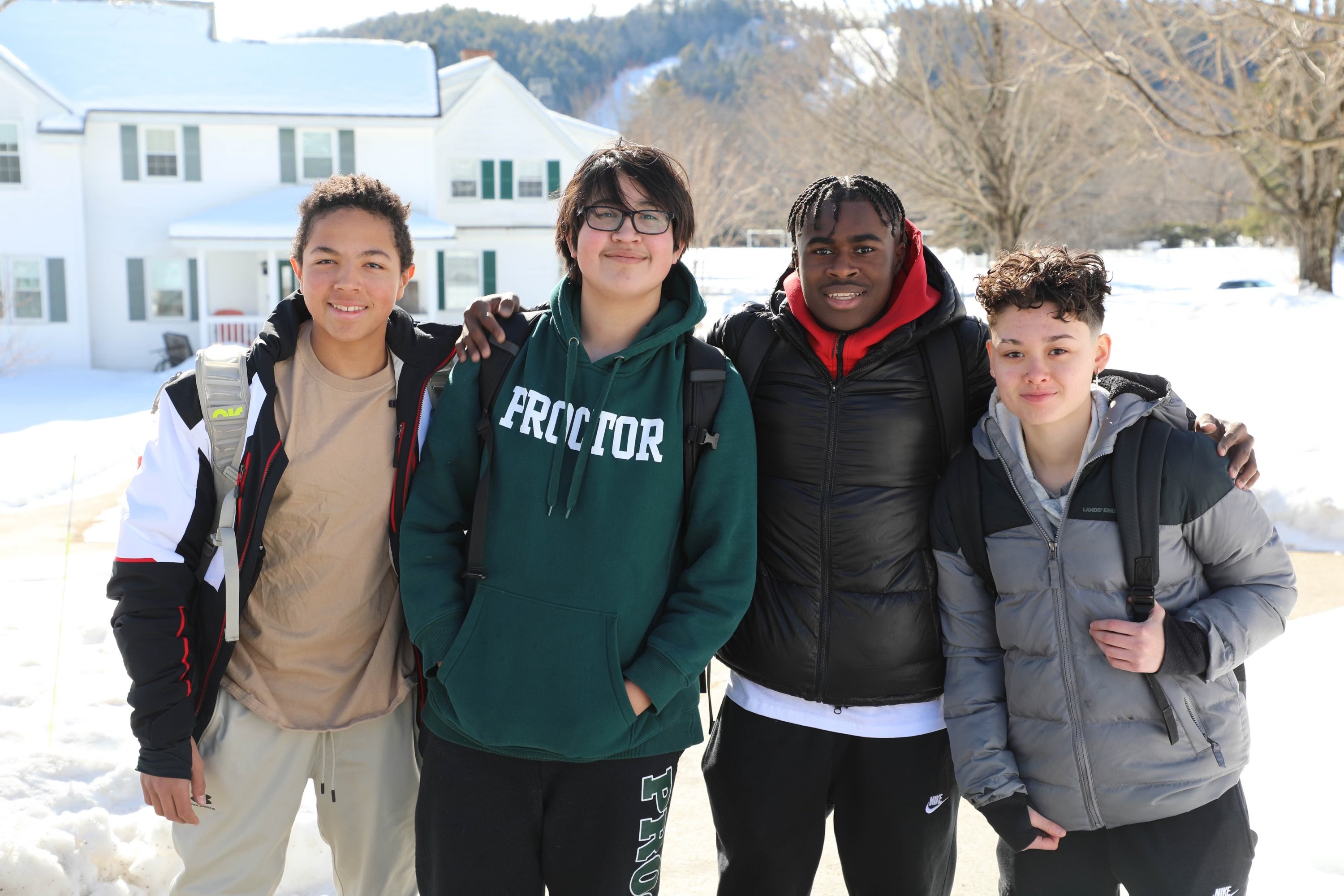With temperatures plummeting well below zero over the next two days, we find ourselves in the heart of winter; academic classes, research papers, projects, athletic schedules, and musical rehearsals fill our days and minds. With four weeks until the end of the Winter Term, this stretch of the school year can feel especially challenging for all of us.

As educators, and parents, we constantly seek to balance nurturing support with accountability and a push towards helping our students persevere through challenges. We want to see our students happy AND we want to see them push themselves through initial moments of discomfort in the classroom, in athletic competition, and in the arts.

Amy Morin, the author of 13 Things Mentally Strong People Don’t Do, has enough experience with hardship to get the attention of those around her. As she notes in her TedX Talk, “Sooner or later you’re going to hit a time in your life when you are going to need all the mental strength you can muster.” Her list of 18 things mentally strong people do is a list we should each tack up in our office, dorm room, or next to our bathroom mirror. It serves as a daily reminder to choose freedom from the negativity that accompanies life's trials. But what are we doing as a school to help our students understand the importance of mental fortitude, grit, perseverance? Are we effectively walking that magical line between rigor and support that we say we do so well? Are we pushing our students toward joy-inducing activities?

Academic Dean Derek Nussbaum Wagler shared THIS podcast with me yesterday. As I listened to the interview with psychologist Laurie Santos – a Yale professor and host of “The Happiness Lab” podcast - and her perspectives on how we find happiness in our lives, I thought about our community as we walk, sometimes trudge, through this stretch of the Winter Term. Santos notes, “There is this myth of happiness that a good life means we are happy all the time, but emotions are a signal telling our body how we should behave in the future. Sadness is telling us something is amiss. Loneliness is telling us we need to seek social connection. Anger tells us that something is wrong, that there is an injustice out there that you need to fix. This idea that we need to be happy all the time would be psychologically and evolutionarily terrible for us. We would be missing out on these signals telling us what we need. Happiness isn't about being happy all the time, it is about having the normative emotions that come up based on situations.”

Santos offers tangible steps that will help us pursue happiness in our lives. We share her suggestions below so that we may find ways to implement them in our own lives. We do not need to be happy all the time, but we should know how and where we can help ourselves find happiness.

Social Connection
Regardless of our personality profile, finding and maintaining social connect is the single biggest factor in sparking happiness in our lives. We must seek it out, even when we feel tired and cold and ready to curl up alone in our rooms.
Self-Care Through Service
We must move beyond the notion of self-care as a selfish activity, and instead understand the relationship of doing something for other people and your happiness. Volunteering, offering to shovel someone’s driveway, stack wood for a neighbor, or simply help clean up our spaces on campus can elicit positive emotions as a new form of self care.
Mindset of Gratitude
The act of acknowledging all that we are thankful for in our lives has been scientifically proven to increase our happiness. Start a gratitude journal, tell your roommate, share with your advisory and move yourself toward a happier mindset.

Act of Being Present
In all situations - even when things don’t feel good - we must work to be actively present, to take out our headphones, put our phones away, and simply be in the moment.
Time Affluence
Perhaps the most challenging strategy for us to employ at Proctor is the concept that when we feel like we have free time, we become more apt to find joy in the activities we are doing. This is far easier said than done in a boarding school community, but an aspirational strategy as we look to clear chunks of our calendars and bask in the glory of choice in how we spend our time.
Novelty
Sometimes our lives feel like walking or running on a treadmill. We get used to the pace and feel like the world isn’t moving anymore because it is more of the same each day, but if we can find novelty in our lives, we can trigger newfound happiness.

Here’s to warmer, brighter days ahead filled with individuals who understand the importance of feeling a full range of emotions each day, and know where and how to help each other find happiness when they need it.








